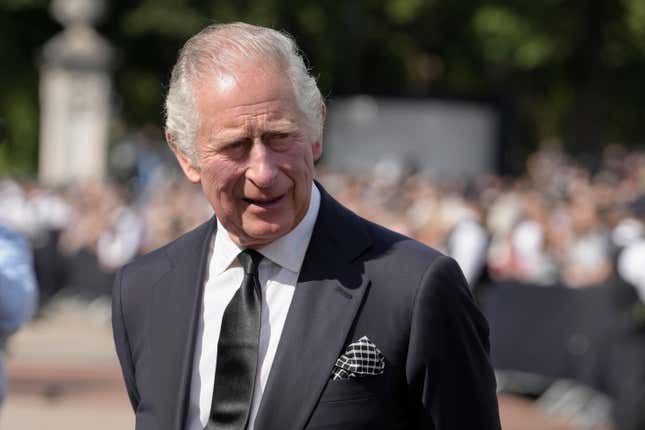
The story was updated on May 6 at 8 a.m.
When Queen Elizabeth II died in September at 96 years of age, it meant that Prince Charles would finally ascend to the British throne as King Charles III. At 74, he is the oldest monarch to be crowned. He’s also had the longest wait to the throne in British history. After her passing, he released the following statement:
“We mourn profoundly the passing of a cherished sovereign and a much-loved mother. I know her loss will be deeply felt throughout the country, the Realms and the Commonwealth, and by countless people around the world. During this period of mourning and change, my family and I will be comforted and sustained by our knowledge of the respect and deep affection in which the queen was so widely held.”
However, social media was quick to point out Britain’s longstanding history of colonialism. Their empire was rooted in theft and violent oppression and slavery. Although Queen Elizabeth led in a post-colonial era, the country still had connections to a colonial past that affected Asian and African colonies. She passed away less than a year after Barbados removed her as its head of state and became a republic. Other countries like Jamaica have also hinted they want to follow Barbados’ lead and become a republic.
Although soldiers from Bahamas and South Africa walked along British soldiers during the coronation, an expert told PBS recently that the coronation and tradition will only draw criticism among former colonies.
“Interest in British royalty has waned since more Jamaicans are waking to the reality that the survivors of colonialism and the holocaust of slavery are yet to receive reparatory justice,” the Rev. Sean Major-Campbell, an Anglican priest in the Jamaican capital, Kingston, said.
The coronation is “only relevant in so far as it kicks us in the face with the reality that our head of state is simply so by virtue of biology,” Major-Campbell added.
Charles automatically becomes king of the United Kingdom as well as the head of state of 14 other realms including Jamaica, St. Kitt, Canada, Australia and New Zealand. In addition, his wife Camilla will become queen consort.
Charles has also become head of the British Armed Forces, the civil service and the judiciary and the civil service as well as the Supreme Governor of the Church of England. He is the Fount of Honour, which means that going forward all honors, such as knighthoods, will be given in his name.
Ultimately, there probably won’t be real change under Charles’ rule. The United Kingdom does not have a codified constitution, so the role of king is governed by convention as opposed to law. He is expected to remain politically impartial, though he is responsible for appointing a prime minister, opening parliamentary sessions, approving official appointments and legislation.
Charles also receives the credentials of foreign ambassadors and hosts world leaders on state visits. But due to the scrutiny Britain has received following son Prince Harry and Meghan Markle’s accusations of racism and lack of support, Charles will most likely be extremely careful. His reputation never really recovered following the divorce from his late first wife, Princess Diana.
Queen Elizabeth worked diligently to put a halt to any independence movements and stop newly independent colonies from exiting the union from the Commonwealth. It is safe to assume Charles will follow in her footsteps.

